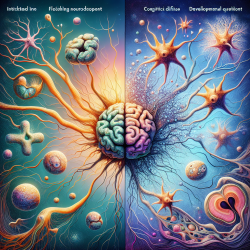Introduction
Parkinson's Disease (PD) is widely recognized as a motor disorder, yet it also significantly impacts speech, with up to 90% of individuals developing dysarthria. This condition results in reduced speech intelligibility, primarily due to impaired articulation. Recent research, particularly the study titled Changes in Vowel Articulation with Subthalamic Nucleus Deep Brain Stimulation in Dysarthric Speakers with Parkinson's Disease, sheds light on how Deep Brain Stimulation (DBS) of the subthalamic nucleus (STN) can enhance vowel articulation in PD patients.
Research Insights
The study focused on eight Quebec-French speakers with idiopathic PD who had undergone STN DBS. Researchers compared vowel articulation in ON-stimulation versus OFF-stimulation states using acoustic vowel space and formant centralization ratio. Results indicated that maximum vowel articulation improved during ON-stimulation, suggesting that DBS can enhance the range of movement in speech production. However, the impact on overall speech intelligibility remains modest, emphasizing the need for individualized optimization of electrical parameters.
Practical Implications for Practitioners
For speech-language pathologists, these findings underscore the importance of integrating DBS insights into therapeutic practices. Here are some actionable steps:
- Data-Driven Therapy: Use acoustic measurements to tailor therapy plans. Track changes in vowel articulation to adjust therapy goals.
- Individualized Stimulation Settings: Collaborate with neurologists to optimize DBS settings for each patient, focusing on improving articulation without compromising other speech parameters.
- Comprehensive Assessment: Regularly evaluate both motor and speech symptoms using tools like the Unified Parkinson's Disease Rating Scale (UPDRS-III) to monitor therapy effectiveness.
Encouraging Further Research
While this study provides valuable insights, it also highlights areas for further exploration. Future research should investigate:
- The impact of DBS on coarticulation, as it plays a crucial role in speech intelligibility.
- The differential effects of unilateral versus bilateral DBS on speech outcomes.
- The influence of disease onset age on speech characteristics and DBS efficacy.
By expanding research in these areas, we can refine therapeutic approaches and improve outcomes for individuals with PD.
Conclusion
This study is a pivotal step in understanding the potential of DBS to enhance speech articulation in PD. By leveraging data-driven insights, practitioners can optimize therapy and contribute to the evolving landscape of speech-language pathology. For those interested in the detailed findings, I encourage you to read the original research paper: Changes in Vowel Articulation with Subthalamic Nucleus Deep Brain Stimulation in Dysarthric Speakers with Parkinson's Disease.










